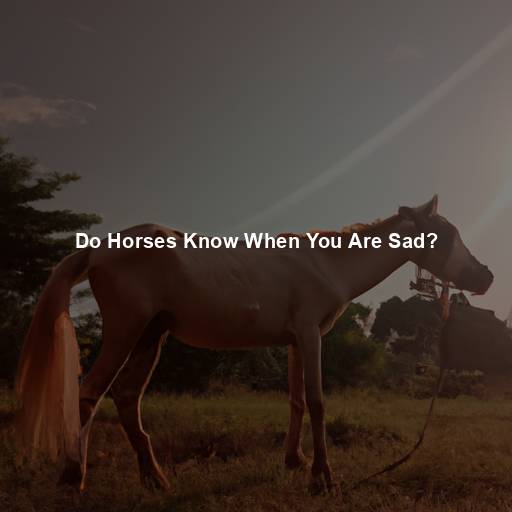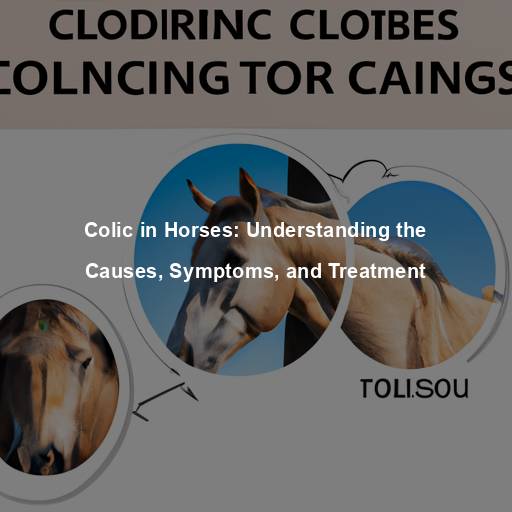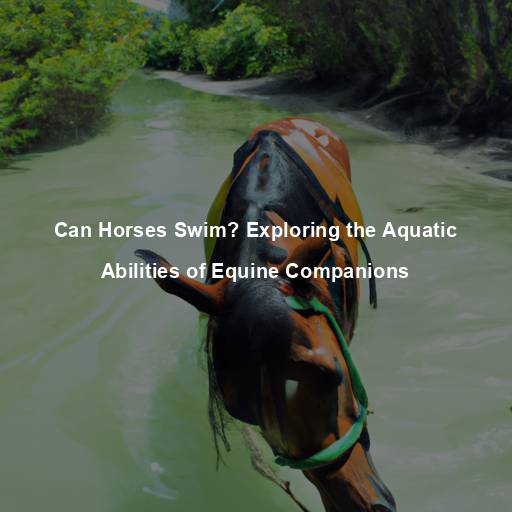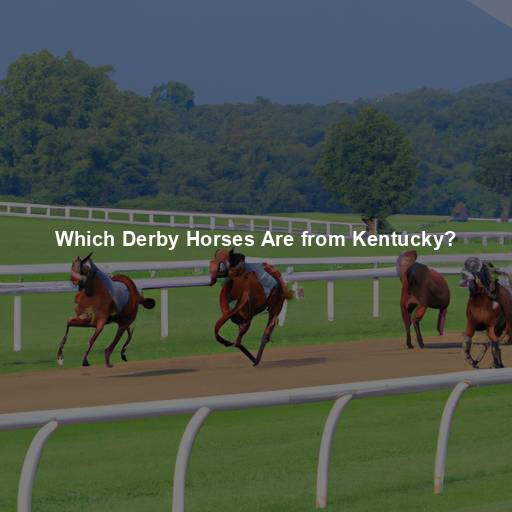Do Horses Know When You Are Sad?
Last Updated on July 12, 2023 by Evan
Contents
- 1 Understanding the Emotional Connection between Humans and Horses
- 1.1 The Language of Emotion
- 1.2 Nonverbal Communication
- 1.3 Empathy and Mirror Neurons
- 1.4 Sensing Energy
- 1.5 The Power of Bonding
- 1.6 Case Studies and Anecdotal Evidence
- 1.7 The Importance of Mutual Care
- 1.8 The Unspoken Connection
- 1.9 Understanding Equine Cognition
- 1.10 Facial Expressions and Vocal Cues
- 1.11 Heart Rate Variability
- 1.12 Olfactory Communication
- 1.13 The Role of Social Bonds
- 1.14 Equine Empathy and Mirror Neurons
- 1.15 The Influence of Training and Handling Techniques
- 1.16 Cultural and Individual Differences
- 1.17 The Healing Power of Equine Therapy
- 1.18 Equine-Assisted Psychotherapy
- 1.19 Emotional Support Animals
- 1.20 Equine-Facilitated Learning
- 1.21 Therapeutic Riding
- 1.22 Equine-Assisted Learning for Children
- 1.23 Enhancing Horsemanship Skills
- 1.24 Further Research and Exploration
- 2 FAQs: Do Horses Know When You Are Sad
- 2.1 Can horses sense when a person is feeling sad?
- 2.2 How do horses express their understanding of sadness?
- 2.3 What is the reason behind horses being able to tell when someone is sad?
- 2.4 Can horses help alleviate sadness in humans?
- 2.5 Are all horses equally perceptive to human emotions?
- 2.6 Can horses distinguish between different emotions, or do they only recognize sadness?
Understanding the Emotional Connection between Humans and Horses
For eons, humans have been enthralled by the mesmerizing allure of horses, captivated by their enchanting elegance, immense power, and innate poise. These majestic beings have stood steadfastly by our side throughout the ages, dutifully fulfilling various roles as faithful companions, devoted labourers, and cherished confidantes. While we forge profound connections with these awe-inspiring creatures, an enigmatic question lingers in our minds – can horses truly comprehend our emotions? Do they possess an uncanny ability to discern our sorrows and empathize with our melancholy?
The Language of Emotion
Emotions are a universal language that transcends species boundaries. While horses may not express emotions in the same way humans do, they are highly perceptive animals that can pick up on subtle cues and body language. They possess an innate ability to read human emotions, which allows them to establish a unique bond with their human counterparts.
Nonverbal Communication
Horses possess an extraordinary ability to decipher the intricate language of our nonverbal communication. Their astute awareness extends beyond words to encompass the subtle nuances of facial expressions, inflections in our tone, and the unspoken language of our bodies. Even our deepest emotions, like sadness or distress, are clandestinely conveyed through the slightest shifts in our physique—tensions in our muscles, the slight sag of our shoulders, and the melancholy that lingers in our eyes. These perceptive creatures adeptly unravel the enigma of our nonverbal cues, skillfully orchestrating their responses in perfect harmony.
Empathy and Mirror Neurons
Delving into the depths of equine cognition, the enigma of horses and their empathetic prowess elicits a sense of bewilderment. Whilst unequivocal evidence may be elusive, various studies insinuate that horses harbor mirror neurons – enigmatic brain cells that ignite their exquisite ability to sync actions with their kindred. These celluloid enigmas might just be the key to unraveling the equine empathy enigma, allowing us to fathom the enigmatic emotional realm that resides within these majestic creatures. So, saddle up and embark on a voyage through this mysterious labyrinth of mirror neurons – where empathy and the subtlest of equine emotions intertwine.
Sensing Energy
There is something truly fascinating about the way horses connect with the world around them. Their innate ability to perceive and navigate through the realm of energy is nothing short of remarkable. It’s as if they possess a sixth sense that allows them to detect even the most subtle shifts in their environment, absorbing the electromagnetic waves that humans emit. In moments of sadness, when our energy becomes a turbulent sea, horses are quick to decipher these fluctuations and react in the most empathetic manner.
The Power of Bonding
Deep within the realm of human-equine relationships lies a wondrous tapestry woven by threads of trust, respect, and a profound exchange of understanding. As we traverse the realm of equine companionship, an unspoken language emerges, transcending mere words. This ethereal connection enables horses to perceive the intricacies of our emotional landscape and instinctively tailor their responses. In their silent steadfastness, they offer solace, companionship, and an empathetic ear, forging a bond that defies conventional communication.
Case Studies and Anecdotal Evidence
While scientific research on horses’ ability to sense human emotions is limited, numerous anecdotal accounts and case studies suggest that horses indeed possess a keen sense of emotional awareness. Many horse owners and trainers have shared heartwarming stories of their horses offering comfort during times of sadness or distress. These accounts further reinforce the belief that horses can sense and respond to human emotions.
The Importance of Mutual Care
There’s a fascinating connection between humans and horses that goes beyond the surface. These majestic beings have an almost magical ability to decipher our emotions, which underscores the weighty responsibility we bear as their guardians. It’s crucial for us to recognize that horses depend on us not only for their physical needs but also for their emotional welfare. In nurturing an environment of positivity and mindfulness, we can cultivate a profound connection with these extraordinary creatures, enriching both their lives and our own.
The Unspoken Connection
In conclusion, while the exact mechanisms behind a horse’s ability to sense human emotions remain a topic of ongoing research, there is ample evidence to suggest that they possess an innate understanding of our emotional states. Horses are highly perceptive animals that can read our body language, sense energy shifts, and respond to our emotional cues. They offer comfort and companionship during times of sadness, reinforcing the deep and unspoken connection between humans and horses. So, the next time you find yourself feeling down, remember that your equine friend might just be there to lend a listening ear and a gentle nudge, reminding you that you are not alone.
Disclaimer: The information provided in this article is based on anecdotal evidence and observations. It is important to remember that individual experiences may vary, and consulting with a professional equine behaviorist or veterinarian is always recommended for specific concerns or queries.## The Science Behind Horses’ Emotional Perception
Understanding Equine Cognition
To delve deeper into horses’ ability to sense human emotions, it is important to explore the field of equine cognition. Equine cognition refers to the mental processes and abilities of horses, including their perception, memory, learning, and problem-solving skills. By examining the scientific research in this area, we can gain a better understanding of how horses perceive and interpret human emotions.
Facial Expressions and Vocal Cues
What if I told you that horses have the remarkable ability to decipher the myriad nuances of human facial expressions? Recent research has unveiled their breathtaking knack for distinguishing between a gleeful grin and an angry scowl, proving that these majestic creatures can adeptly interpret our emotional cues. But it doesn’t stop there – horses are not only masters of facial recognition, but also possess a keen sensitivity to our vocal cues. With an uncanny aptitude for discerning between various tones of voice, these astute animals can unriddle the complex tapestry of emotions conveyed through speech.
Heart Rate Variability
Heart rate variability (HRV) is the variation in time intervals between consecutive heartbeats. It is a measure of autonomic nervous system activity and can be used as an indicator of emotional states in both humans and animals. Studies have demonstrated that horses’ HRV patterns can be influenced by the emotional state of nearby humans. When humans exhibit negative emotions, such as sadness or fear, horses’ HRV tends to synchronize with theirs, suggesting a physiological connection between humans and horses.
Olfactory Communication
When it comes to perceiving the world around them, horses go beyond just relying on what they see and hear; they also have quite the knack for picking up olfactory cues. With their highly sophisticated sense of smell, horses can detect pheromones and other chemical signals, making them masters of deciphering their environment. Interestingly, studies suggest that horses are even capable of detecting changes in human body odor that align with various emotional states, furthering their ability to sense and react to our emotions. It’s truly remarkable how these magnificent creatures utilize olfactory communication to navigate the perplexities of human interaction.
The Role of Social Bonds
Horses are social animals that form strong bonds within their herds. These social bonds play a crucial role in their ability to sense and respond to human emotions. Horses are known to establish similar bonds with their human caretakers, which enhances their emotional perception. The trust and connection developed through positive interactions and consistent care create a foundation for effective communication between humans and horses.
Equine Empathy and Mirror Neurons
Empathy, as mentioned earlier, is the capacity to understand and share the feelings of others. While it is challenging to measure empathy directly in animals, some researchers believe that horses possess a degree of empathetic ability. Mirror neurons, which are found in the brains of both humans and animals, are thought to play a role in empathy. These neurons allow horses to mirror and mimic the emotional states of those around them, facilitating a deeper understanding of human emotions.
The Influence of Training and Handling Techniques
The complex relationship between horses and humans encompasses a fascinating interplay of training and emotions. The manner in which these majestic creatures are nurtured and guided has a profound impact on their remarkable ability to perceive and react to human sentiments. Those fortunate enough to have undergone positive reinforcement training, complemented by gentle and understanding handling, often forge an unbreakable connection with their caretakers. Subsequently, they appear finely attuned to the fluctuating emotional landscape of their human counterparts, responding with an almost uncanny sensitivity.
Cultural and Individual Differences
It is important to consider that cultural and individual differences can influence the perception and interpretation of human emotions by horses. Different training practices, handling techniques, and cultural norms may shape horses’ responses to human emotional cues. Additionally, individual horses may display varying levels of emotional sensitivity and empathy, just as humans do. Factors such as breed, temperament, and past experiences can all contribute to individual differences in horses’ emotional perception.
The Healing Power of Equine Therapy
The remarkable capacity horses possess to intuitively comprehend and react to the complex tapestry of our emotions has paved the way for transformative therapeutic interventions. Equine-assisted therapy, aptly dubbed horse therapy, extends an opportunity for profound emotional expansion, introspection, and individual growth through dynamic human-horse interactions. In this realm, horses emerge as formidable catalysts, their non-judgmental and empathetic presence sparking a profound healing process and fostering emotional equilibrium and contentment. The concept of equine therapy is a captivating testament to the enchanting melding of human and equine minds, birthing a realm of unforeseen possibilities for personal well-being.
Equine-Assisted Psychotherapy
In the realm of therapeutic treatments, there exists a captivating and somewhat unconventional approach known as equine-assisted psychotherapy (EAP). This groundbreaking method ingeniously combines the power of horses with the intricacies of the human mind. EAP has astonished the mental health community with its remarkable ability to address an extensive array of psychological concerns such as depression, anxiety, trauma, and substance abuse. The enigmatic nature of these majestic creatures allows them to seamlessly integrate into the therapeutic process, acting as co-therapists that guide individuals towards the path of personal growth, self-discovery, and trust-building.
Emotional Support Animals
The profound connection between horses and humans extends beyond the confines of equestrian pursuits. Not only do these majestic creatures possess an uncanny ability to read human emotions, but they also offer solace and support as emotional companions. While emotional support animals are commonly associated with beloved dogs and cats, it is the enigmatic presence of horses that has emerged as a transformative force for individuals battling mental health conditions. The equine essence provides a remarkable source of healing, alleviating the burdens of anxiety, depression, and stress, and forging an unyielding bond that transcends conventional understanding.
Equine-Facilitated Learning
Experience the transformative power of horses as we delve into the world of equine-facilitated learning (EFL). This innovative educational approach combines the grace and intuition of horses with interactive exercises and activities that foster personal growth and development. Uncover a treasure trove of life skills, including effective communication, strong leadership, creative problem-solving, and the ability to regulate your emotions. Get ready for a journey of self-discovery as horses use their unique ability to sense and respond to human emotions, providing honest and immediate feedback.
Therapeutic Riding
Therapeutic riding, also known as horseback riding therapy or hippotherapy, involves using horseback riding as a form of physical and emotional therapy. This intervention has been particularly beneficial for individuals with physical disabilities, as the rhythmic motion of the horse can improve balance, coordination, and muscle strength. Additionally, horses’ ability to sense and respond to human emotions enhances the therapeutic benefits of this intervention. The bond between the rider and the horse can promote emotional well-being, boost self-confidence, and provide a sense of freedom and empowerment.
Equine-Assisted Learning for Children
Equine-assisted learning (EAL) has shown promise in helping children develop essential life skills and improve emotional well-being. By engaging in activities that involve interacting with horses, children can learn empathy, responsibility, assertiveness, and self-esteem. Horses’ unique ability to sense and respond to children’s emotions creates a safe and non-judgmental environment for learning and personal growth. EAL can be particularly beneficial for children with social or emotional difficulties, providing them with a supportive and enriching experience.
Enhancing Horsemanship Skills
Exploring the enigmatic realm of equine perception and its uncharted connection to human emotions can unlock an array of possibilities for equestrian enthusiasts. By unraveling the intricate tapestry that binds rider and steed at an emotional level, a new frontier of horsemanship prowess unveils itself. It is through this bewildering interplay of nonverbal nuances and energy flows that the equine companion emerges as an intuitive mirror, reflecting our deepest sentiments and heralding a profound communion. As we delve deeper into the mystical realms of this emotional link, horsemanship transcends mere skill and becomes a transformative journey, permeated with the tantalizing prospect of unspoken understanding and limitless refinement.
Further Research and Exploration
With each passing day, we uncover new layers of the enigmatic relationship between humans and horses. While we have made strides in comprehending how horses interpret our feelings, there remains a vast expanse of knowledge waiting to be discovered. The realm of equine cognition is in a perpetual state of flux, constantly evolving, leaving us both intrigued and confounded. It is this very intrigue that propels us to delve deeper into the profound implications of horses’ emotional perception, offering possibilities that span realms of therapy, education, and personal growth.
FAQs: Do Horses Know When You Are Sad
Can horses sense when a person is feeling sad?
Yes, horses have the remarkable ability to perceive human emotions, including sadness. They possess highly intuitive senses that enable them to pick up on subtle emotional cues through body language, tone of voice, and other non-verbal signals. Horses are highly receptive to changes in their environment, and they have an innate sensitivity to human emotions, allowing them to sense when someone is sad.
How do horses express their understanding of sadness?
When horses sense that a person is feeling sad, they may respond in various ways. They are known to exhibit nurturing behaviors by offering comfort and seeking physical contact, such as nuzzling, leaning their head against the person, or standing quietly nearby. Horses have a calming presence and can provide a sense of solace and support, which can be particularly comforting for individuals experiencing sadness or distress.
What is the reason behind horses being able to tell when someone is sad?
Horses have a long history of coexisting with humans and being attuned to our emotions. As social animals, they have evolved to interpret and respond to the emotional states of other herd members to aid in group cohesion and survival. This heightened sensitivity extends to their interactions with humans, allowing them to perceive changes in our emotional well-being. Furthermore, horses are highly perceptive animals with keen observation skills, enabling them to detect subtle changes in our behavior or energy when we are sad.
Can horses help alleviate sadness in humans?
Interacting with majestic creatures like horses has a way of unravelling the tangled web of human emotions. Researchers have discovered that equine-assisted activities and therapies hold incredible potential in easing the weight of sadness that burdens us. It seems that the mere presence of these gentle giants, be it through grooming, riding, or a shared quiet moment, has an ethereal power to forge a sense of connection, trust, and inner serenity. The remarkable lack of judgment that emanates from these creatures is like a balm for our souls, offering solace and light amidst our darkest days.
Are all horses equally perceptive to human emotions?
While it is generally believed that horses are highly perceptive to human emotions, there may be individual variations in how they respond based on their unique personalities and experiences. Some horses might naturally possess a stronger inclination to be attuned to human emotions, while others may require more time to develop a deeper understanding. Additionally, horses that have undergone specialized training or have been involved in equine therapy programs may demonstrate an enhanced ability to respond to human emotional signals.
Can horses distinguish between different emotions, or do they only recognize sadness?
It’s no secret that horses possess a remarkable knack for deciphering our emotions – and it goes far beyond detecting moments of sadness. These majestic creatures have an innate ability to recognize a whole spectrum of human feelings, ranging from sheer bliss to seething rage, from bone-chilling fear to the familiar pangs of stress. What’s truly fascinating is that the depth of their understanding hinges upon the degree of connection and companionship they share with us. By astutely observing our subtle shifts in demeanor and the very essence of our energy, horses are able to navigate the intricate labyrinth of our emotions, effortlessly adjusting their responses to match the emotional signals they receive.







